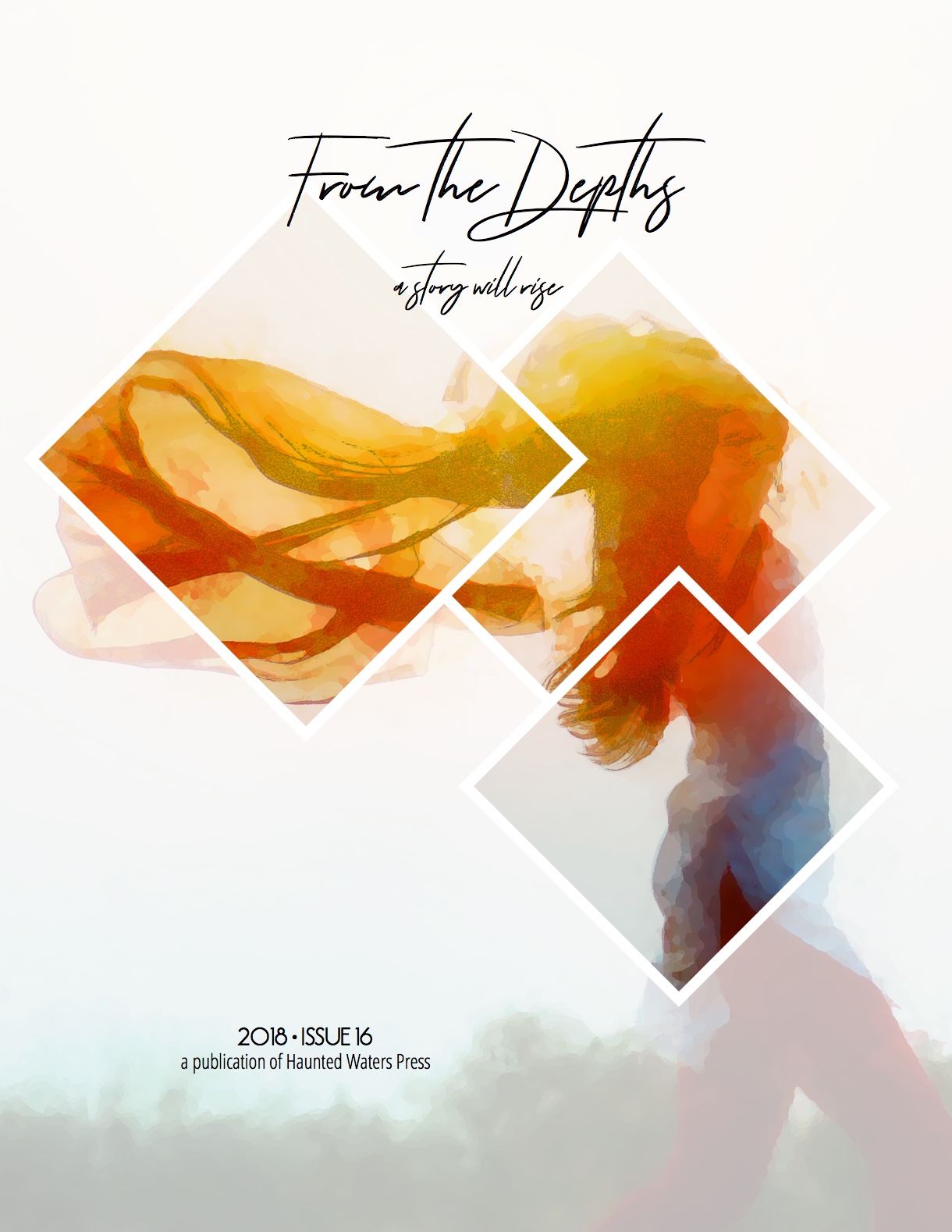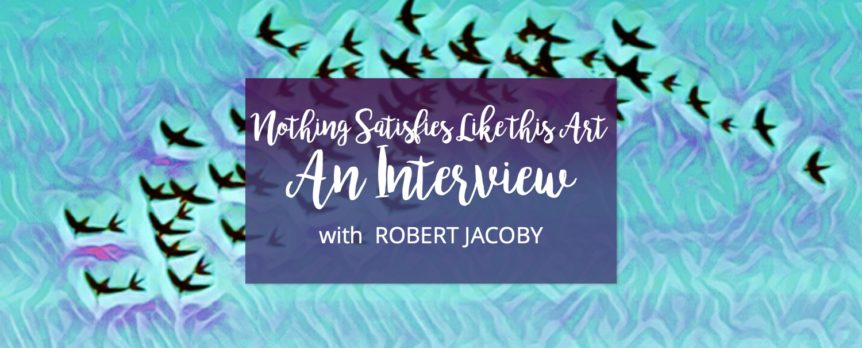I'm a poet, novelist, and memoirist finishing a 3-year career sabbatical, which started in October 2015, when I spent the entire month in a cottage on the beach in Costa Rica working on my second novel. Upon my return to the States I resigned my position to write full time, and since then I've been able to finish two novels and a memoir (by interview) of a friend who lost his wife in a pedestrian traffic accident in Washington, D.C. in April 2010, and the aftermath and recovery with his two young sons. I'm seeking representation for all three books now.
What inspired you to write this particular piece?
I handed off the draft of my third novel to my editor in May and immediately wanted a new challenge. The short story was my first love when I was a young writer, but I hadn't tried in so many years. After working on three books, the story form seemed a nice challenge; a sort of "return to my roots." I'm envisioning this particular piece in a collection of loosely connected stories, some flash fiction (like "The Span of Blood") and some longer stories. This piece started with one image--that extraordinary sight on the roadside of the turbulent vessel of migrating birds just overhead--and the boy as witness, with his family. (The event happened, but I was much older and alone, on a deserted country road in the middle of Ohio.) I worked backwards to the grandmother's death; I wanted to move from death to life.
Read good poetry. Read good nonfiction. Everything goes into the stew of you, and your voice will naturally come from that.
—Robert Jacoby
What fuels your writing? Where do you typically find your ideas and inspiration?
My passion for language, and my interest in the incredible range of human existences. I think those two things underlie what I want to express, capture in words, whether in poetry, fiction, or non-fiction. I'm inspired by life. I keep my eyes and ears open.
What is your writing day like?
I developed a disciplined routine immediately upon my return from Costa Rica. I work every morning in my home office, first thing, whether that's 5 a.m. or 8 a.m., and I usually work 2 to 6 hours, sometimes more, depending on what stage I'm in. I write in longhand, on yellow legal pads. The next stage is keying in the text, and of course there are revisions happening then, too. The third stage I can be in is after I print out the manuscript or notes, so then it's on to reading and revising and deepening the text. Always deepening.
Is there a particular environment that stimulates your creativity?
When I drive my car I tend to get ideas, if I'm working on something. Driving is a trigger. Words, sentences, entire conversations for characters in a story will come to me. So I always keep a notebook and pen with me. Sometimes I need to pull over to the side of the road to write.
Do you have any writing routines or rituals that you practice?
Every day I log my work. Just a line or two. I like to track my progress. When I'm working on a novel I typically won't work on the weekends. I need to rest.If I'm not working on poetry, a novel, or a story, it's because I'm resting. My writing "practice" is journaling. I've kept a journal since about 1984, and written more than a million words there, about life, my writing, anything that comes to mind. It's a wonderful outlet.
How long have you been writing? Was there a defining moment that led you down this path or a person who encouraged or helped shape you as a writer?
I've been writing in a serious way since I was 19. I had a very traumatic personal experience and came away from it with an abiding sense of what I was supposed to do, and that was to write. Nothing satisfies like this art.
 Are there any authors who have influenced your writing?
Are there any authors who have influenced your writing?
Flannery O'Connor and Joseph Conrad come immediately to mind as my early influences. When I discovered Dylan Thomas I was floored. I had no idea those things could be done with language. Two other big influences have been the novelists William Goyen and Cormac McCarthy. Both are masters of prose I look up to. Contemporary authors I enjoy are Ron Rash and Richard Powers.
What are you reading right now?
Ulysses, by James Joyce
The Most Dangerous Book: The Battle for James Joyce's Ulysses, by Kevin Birmingham
Meditations, by Marcus Aurelius
What other forms and genres do you enjoy writing?
I very much enjoy writing poetry. There's something vital and exhilarating about that short form and making every word count. The breadth of life a novel provides is on such a large scale; it's very satisfying to me to finish a novel properly. Writing in my journal, for myself, is enjoyable in a much different way. It fills an easy mechanical, but at the same time deeply spiritual, need in me to create.
Of your other published works, do you have a personal favorite you would like to share with our readers? Where can we find it?
My second novel. But you can't read it because it's not published.
Some of my poems are little polished gems of words made into images. Read "When I told you I was thinking about nothing, I lied" (published in Cobalt Review in 2013; there's no online version but it's on my site at robert-jacoby.com). This is the title poem for a chapbook I've been submitting to contests this summer. My partner asked me once, "What are you thinking?" And when I told her "Nothing" I saw a look of disappointment come across her face. I wrote this poem almost immediately afterwards to let her know what I was thinking.
What’s next? Do you have any writing projects on the horizon?
What's next? Finding an agent to represent my three books! Also, getting a job. I've been on hiatus for 3 years and am actively seeking full-time work.
As for writing projects: I have an idea for a collection of loosely connected short stories and flash fiction pieces. And I've been submitting more poetry to literary journals and for chapbook contests. No new novels are planned. Yet.
What words do you live by?
I live by every word out of the mouth of God.
If you could share any advice for aspiring writers, what would it be?
Are you doing everything you can to improve your craft? The best writer on writing is John Gardner. Read what he says about the craft of writing.
Are you reading great writers? To write well you must read well. As a young writer I didn't understand this much, and I even balked at the idea. But as I've gotten older, and with the more I read, I am convinced this is the only way to find your best voice: read the best writers and learn from them. Read the "big books" to see how the masters did it. I mean Homer and Shakespeare, Milton and Melville. Read current writers, too, to learn from them. Cormac McCarthy, Ron Rash, Richard Powers. What to do, and what *not* to do. Read good poetry. Read good nonfiction. Everything goes into the stew of you, and your voice will naturally come from that.

About the Author
Robert Jacoby is a writer living in Eldersburg, Maryland. His poetry, fiction, and nonfiction have appeared in more than 20 literary magazines. He is the author of two books, a novel, There are Reasons Noah Packed No Clothes (2012), and a biography, Escaping from Reality Without Really Trying (2011). He is currently working on getting four books published: two novels, one nonfiction memoir, and a book of poetry.
Share this Post


Comments
Hope you find a publisher soon. Looking forward to reading your novels.